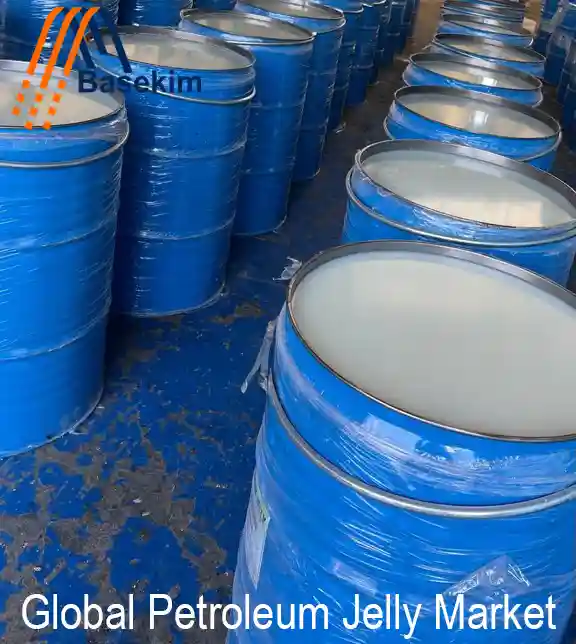
The global petroleum jelly market is experiencing notable growth as demand from the cosmetics and pharmaceutical sectors accelerates. Driven by shifting consumer habits, rapid urbanization, and expanding healthcare access, petroleum jelly is emerging as a key raw material for manufacturers worldwide.
Industry analysts report that the market is undergoing a steady transformation. In particular, brands are focusing on product innovation, sustainable sourcing, and reliable global supply chains to meet evolving needs.
Growing Role in Skincare and Health Products
In recent years, consumer awareness of skincare and wellness has increased dramatically. As a result, petroleum jelly is now a vital component in a wide variety of skincare and personal care items. Global cosmetic brands rely on it for premium lotions, lip care products, and protective creams designed for daily use.
Meanwhile, the pharmaceutical sector continues to expand its applications. For example, petroleum jelly is used in topical treatments, medical ointments, and wound care solutions. Because of its consistent quality and reliability, it has become a preferred ingredient for sensitive healthcare formulations.
This dual demand from cosmetics and pharmaceuticals is creating strong growth momentum across the market. Consequently, suppliers are ramping up production to keep pace with global consumption.
Rising Demand in Emerging Economies
While developed regions maintain stable consumption levels, emerging markets are driving the next wave of growth. Countries in Asia, Africa, and South America are showing increased appetite for affordable personal care and healthcare products.
In particular, rapid urbanization and higher disposable incomes are boosting sales in countries such as India, Brazil, and Indonesia. Furthermore, improved distribution networks are making premium products accessible to wider populations.
As demand rises, manufacturers are focusing on competitive pricing and localized packaging solutions. This approach not only meets consumer expectations but also helps brands establish a strong presence in developing regions.
Basekim’s Strategic Global Position
To meet this surge in demand, Basekim has strengthened its role as a trusted international supplier. Operating from hubs in the UAE and Turkey, the company ensures efficient global distribution of high-grade petroleum jelly.
Unlike many suppliers, Basekim combines advanced logistics with strict quality control. Therefore, clients receive reliable shipments tailored to the specific needs of the cosmetics, pharmaceutical, and industrial sectors.
Moreover, Basekim supports bulk shipments worldwide, offering flexible packaging options and timely delivery for manufacturers and distributors seeking a dependable partner.
Market Shifts Toward Sustainability
Environmental concerns are influencing every stage of production, from refining to packaging. As a result, petroleum jelly producers are investing in cleaner manufacturing processes and recyclable materials.
Brands are also prioritizing ethical sourcing and transparency. This trend is reshaping buyer preferences, as businesses increasingly choose suppliers who demonstrate environmental responsibility and meet international compliance standards.
By adapting to these changes, companies like Basekim are positioning themselves for long-term success in a competitive global market.
Outlook for 2025 and Beyond
Industry forecasts indicate continued growth over the next five years. While cosmetics and pharmaceuticals will remain the primary drivers, additional opportunities are emerging in sectors such as lubricants, specialty chemicals, and industrial applications.
To capitalize on these trends, suppliers must emphasize innovation, efficient production, and strategic partnerships. Consequently, companies that adapt quickly to shifting market demands will gain a competitive edge.

